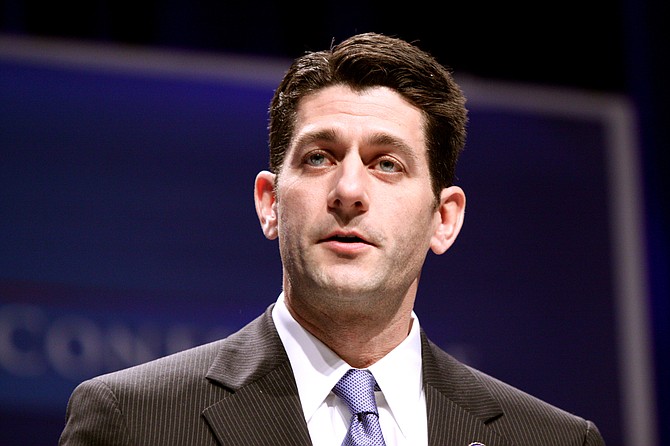Over the years, House Speaker Paul Ryan, R-Wis., has insisted on overhauling the benefit programs, proposing a voucher-like system for Medicare and calling for partially privatizing Social Security. Photo courtesy Flickr/Gage Skidmore
WASHINGTON (AP) — Republicans in Washington have been clamoring for years to address the long-term financial problems of Social Security and Medicare.
On Thursday, the trustees who oversee the programs are scheduled to issue their annual warning about the finances of the federal government's two largest benefit programs.
Don't expect Republicans to do much about it.
Over the years, House Speaker Paul Ryan, R-Wis., has insisted on overhauling the benefit programs, proposing a voucher-like system for Medicare and calling for partially privatizing Social Security.
But now that Republicans control Congress and the White House, Ryan says he doesn't want to tackle Social Security. Instead, congressional Republicans and the White House are focused on repealing and replacing Democrat Barack Obama's health care law, an effort that is stalled in the Senate.
President Donald Trump, meanwhile, has promised not to cut Social Security or Medicare, though his budget proposal for next year would cut Social Security's disability benefits by nearly $70 billion over the next decade. The savings would come from encouraging and, in some cases, requiring people receiving the benefits to re-enter the workforce.
But even if Trump finds the savings, it wouldn't come close to solving the program's long-term financial problems.
In 2034, Social Security faces a $500 billion shortfall, according to last year's report by the trustees. In just five years, the shortfalls add up to more than $3 trillion.
Neither Social Security nor Medicare faces an immediate crisis. But the trustees warn that the longer Congress waits to address their long-term problems, the harder it will be to sustain the programs without significant cuts in benefits, big tax increases or both.
Last year, the trustees said Social Security had enough money in its trust funds to pay full benefits until 2034. They said Medicare's trust fund for inpatient care would be exhausted in 2028.
Those projections will be updated Thursday.
If Congress allows either fund to run dry, millions of Americans living on fixed incomes would face steep cuts in benefits.
More than 61 million retirees, disabled workers, spouses and surviving children receive Social Security benefits. The average monthly payment is $1,253.
Medicare provides health insurance to about 58 million people, most of whom are at least 65 years old.
Over the past decade, Social Security and Medicare made up about 40 percent of federal spending, excluding interest on the debt — a share that is projected to grow in the future, according to the nonpartisan Congressional Budget Office.
Fifty years ago, the two programs accounted for 16 percent of federal spending.
The programs are expanding in part because the U.S. is growing older.
In 1960, there were 5.1 workers for each person getting Social Security benefits. Today, there are about 2.8 workers for each beneficiary. That ratio will drop to 2.1 workers by 2040, according to CBO.
The trustees who oversee Social Security and Medicare are Treasury Secretary Steven Mnuchin, Health and Human Services Secretary Tom Price, Labor Secretary Alexander Acosta and acting Social Security Commissioner Nancy Berryhill.
Copyright Associated Press. All rights reserved. This material may not be published, broadcast, rewritten, or redistributed.



Comments
Use the comment form below to begin a discussion about this content.
comments powered by Disqus